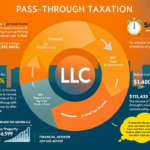As a property owner, you have a great deal of responsibility on your shoulders, from collecting rent from your tenants to managing your properties and keeping them in good working condition. However, there are multiple ways to manage the property you own, and the type of landlord you are will make a significant difference in your day-to-day operations. If you’re looking to rent out your property for the first time or have some experience but want to change your approach to landlording, one of the most common options to consider is being an absentee landlord.
What Is an Absentee Landlord?
An absentee landlord, or absentee owner, is either an individual or a united entity that owns a property and rents it to another individual or entity but does not live on the premises. In simpler terms, an absentee landlord performs their duties from elsewhere without living on the property that they’re renting or leasing.
What Are My Responsibilities As an Absentee Landlord?
As an absentee landlord, some of your responsibilities will be the same as a landlord who resides on the property they own, such as collecting rent payments and making sure the property is well-maintained.
Depending on how far away you live from the property, you may have to factor in travel time to meet and check on tenants or carve out a budget to pay a property manager who can handle day-to-day tasks for you.
Tenant screening is one of the primary and most important responsibilities of an absentee landlord. Having trustworthy tenants will make your job as a landlord much easier. Nowadays, absentee landlords can use video call capabilities to interface with potential tenants if they don’t live close to their property.
Absentee landlords typically handle rent collection and processing through property management software, making it unnecessary for you to visit your property to collect rent.
When it comes to fulfilling maintenance requests and overseeing move-in and move-out days, you may have to rely on a property manager if you can’t travel to the property to oversee things in person.
How Can I Become an Absentee Landlord?
To become a successful absentee landlord, you first need to make sure you have all of the necessary insurance in place to protect you in the event of an emergency, especially if you can’t be there to help in person.
Typical insurance needs in this situation include a landlord insurance policy to cover your property and any of your belongings there. And if you choose to, you can require your tenants to secure a renters insurance policy to cover their possessions.
If you are unable or unwilling to visit your property as an absentee landlord, you should invest in a property manager to make sure tenant issues can be resolved in a timely manner and that requests for maintenance can be arranged and supervised by someone who knows the property well.
Pros and Cons
Absentee ownership can offer landlords a greater sense of freedom and separation from their investment than they would have if they lived on the same property as their tenants.
In addition, because you can reap all of the financial benefits of being a landlord without having to live in the same state as your property or manage it yourself, you can be an absentee landlord multiple times over with as many properties as you’d like.
Since absentee landlords don’t have to manage their own rental properties, such an investment can be a lucrative form of passive income. Without the need to schedule a time to visit your property or properties, you can focus more of your time on other work, making it possible to garner multiple streams of income at once.
Though there are many pros to being an absentee landlord, there are a few cons to consider as well.
Because absentee owners often have to hire a property manager to handle day-to-day affairs for their tenants, absentee landlords often have higher upfront costs than owners who are present and perform their own property management duties.
This level of separation also results in less control over your property and less awareness of how tenants are treating it.










